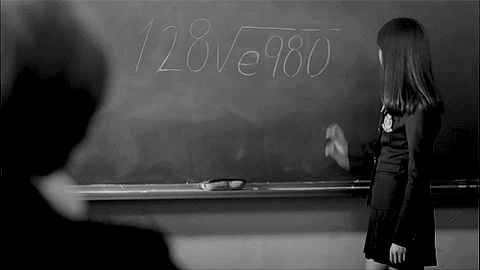Art Academy of Milan, 2019
I’d like to share a couple of pictures with you, I’m hoping you can imagine them. Here goes. You get a phone call, wait, what’s happening? Where? You have to leave right away, it’s a long trip, and it’s going to start by taking a bus. So you walk to the bus stop, but the bus is late. You wait for quite a long time. Question number one: what do you while you’re waiting? Can someone tell me?
Yes. Now can you imagine there was a time before the phone? You know what you would do at the bus stop? Nothing. While waiting for the clothes to finish in the dryer, waiting for the egg to boil, waiting for someone to finish their sentence. You would do nothing, sometimes for a whole afternoon. For a whole weekend. And you know what we did with that nothing? That’s the place where we invented the cinema. We would drift. Free associate. And out of that drift new thoughts would come. New thoughts about friendship, about fear, about love.
But today, the capitalists have colonized our nothing, they took that away from us, so today we have a different challenge in order to make cinema. We have to create cinema in a place of distraction, in a new place of digital loneliness, in a place where everything has already been done, so what making could possibly matter now?
Here’s picture number two. You’re studying at the famous university in Milan, the one where all the smart students go, but also: the ones who pretend they aren’t so smart, the ones who don’t fit in, the ones who are busy trying to find their own way which always means that their grades are suffering. Now please imagine: you have a late night class, you’ve been working all day, you’re stuffed with pizza but the special guest, the foreigner, the one who hasn’t even bothered to learn your language, he hasn’t shown up yet. Oh yes, it’s going to be another him, another guy. He’s part of some movie festival which of course is being run by a guy. And the opening film should be a famous one, by a famous guy, and the closing film should be a famous one, by another famous guy. And in between we’ll run more films by men. This naked display of gender power is so normal that no one will even notice, because gender propaganda is so good here, it’s so deep here.
Gender propaganda. I eat it every morning for breakfast.
Because you’re a good student, or because you’re a bad student, you can’t help but notice, that in this culture, your culture, everything is unequal. Even the rooms are unequal. You notice that there are some parts of the room that are reserved for important people. How can you tell they’re important? Because some people are allowed to speak. There are parts of the room that are reserved to help these people have a voice, so they can talk all the time. And there are other parts of the room that are reserved for people who do not have a voice at all, or at least, have much less of a voice.
This room, this room that we’re in right now, is a picture. It’s a picture of power.
The corporate media delivers the same picture. The corporate newspapers and television channels give a voice to the rich and the powerful. When was the last time you saw a poor person talking on the television? When was the last time you saw a person from Burkino Faso or Nigeria speak on tv? Entire parts of the world are simply erased, as if this was ordinary, “common” sense. What we see in our media is the same people, over and over again, who are allowed to talk all the time, while most of us are never allowed to talk.
We are reassured that we live in a democracy, but how we can that be possible when every room is a demonstration of inequality and power? Because you’re a student, you study the rooms you are living in, and you can see that each classroom is a demonstration of power. And because you’re interested in cinema, you can see how the screen, whether it’s the screen in the classroom or the screen in your phone, when there’s an image on it, the screen becomes the most important part of the room. The screen makes everyone else shut up. The screen is also a kind of dictator, it says: no moving around, no talking, no living. And I think it also has something to do with loneliness, doesn’t it? Power, the exercise of power, always makes us lonely in different ways.
When I am lucky or unlucky enough to be standing in a place where I am allowed to speak, it makes me lonely. How can I reach you? How can I know what you know? How can we get to know each other?
A few weeks ago in Palermo I was talking with some young people in a classroom, after the official blablabla was over. We were just sitting around, we were just talking. We were speaking from our own experience. It was so precious to me. Somehow, we had changed the room. This is the real goal of cinema, I think, ironically. It’s to change the rooms of power. To allow some kind of exchange, some kind of circulation, some kind of flow. To disrupt the official stories, to tell different stories, to allow different voices to speak.
Many of the young students talked about this difficult moment in their lives. Even though they were very young, they felt they had made a huge decision to come to a film school, and to spend so much time there. Am I in the right place? What does it mean ‘the right place.’ What if, for someone like me, there is no ‘right place?’ If I find the right place, will I be able to recognize it, or will I sabotage it, the way I sabotage my relationships. I can never seem to fall in love with the right person, is that because I can’t fall in love with myself?
They had the feeling that the steps they were making now would echo, would continue, would endure, for the rest of their lives. So even though they were very young, they were also very old. Because they were carrying this enormous burden, this heavy weight of the rest of their lives. They were young old people. Does that sound familiar?
You could say that this is something they were doing to themselves, it’s their choice, and in some sense you’d be right, yes, they were doing it to themselves. But I couldn’t help but be struck that they all felt the same thing. Aha. If everyone is reporting the same thing, that’s the sound of power at work. It means that something from the outside world, from our culture, is now living inside their bodies.
This is the thing. You can’t stop pictures from entering you, and these pictures have already changed your life. Many of them determine what you think of as yourself. The kinds of clothes you like, the fact that you’re interested in football, or motorcycles or movies. Culture is a projector, and it is busy day and night projecting pictures inside you. Many of us like to turn these pictures into gods. Oh yes, great master, I hear and obey you. If I don’t get a new motor scooter I will die. We don’t even know we’re doing it, this is how the culture projector works – it’s propaganda, and propaganda disguises itself as… ? Anyone? How does propaganda appear? Yes, it hides itself, it keeps itself a secret, by pretending it is the truth. It is “common sense.”
When I was speaking with my new student comrades, I only spoke after everyone had spoken, especially after the most reluctant person, the shyest person, the person with the least confidence, they had to speak, and after that then I could say a few words. One of the things I said was that even though I am a very old man, I am a student. They all looked at me with eyes that were this big. What? A student? No, no, we are students, while you are a Professor.
I could hear how certain they were of what it meant to be a professor, of what it meant to be in this school, even of what education was. They already knew. But I only want to make movies. And in order to make movies, I need to be a student. I need to be the person who doesn’t know. Of course, it’s easier to do this from a place of power. When you feel you have no power, it’s hard to be even more marginal, it’s harder to embrace uncertainty. What I’m saying is that uncertainty or not knowing, can be a privilege.
What I heard them tell me was that the rooms they have been living in have taught them very well. But I was trying to assure them, that education was not a question of knowing more and more. This is the myth in today’s neo-liberal capitalist moment, that education means getting more, filling yourself, eating facts, eating knowledge. And the person who knows the most is like a glutton, a fat glutton eating all the facts.
A few years ago, I met some of these gluttons. I started teaching, not very much, just a course or two, and when I did I met some of the important people in a university back home where I live in Toronto. Wow, these gluttons were so smart. They could tell you every fact about every director, they could remember even films their mothers watched while they were still inside her body.
But they didn’t know how to talk to another human being. They needed this place of power so they could blablabla. Do you know what I mean? You stand here not simply because you want to share your understandings with others, not because you’re concerned with knowledge, but because you want to have power, you want to exercise power over others.
And this place of power made them lonely, it isolated them, and this isolation made them stupid. Their power and money and status protected them, and by protecting them, it was slowly but surely destroying them. Their students were no longer listening to these boring gluttons. It seems the systems of power weren’t working so well.
What if education meant: knowing less? Let me give you an example.
I work in a field of artist’s movies. It means: I don’t like genres. You know this word? Genre. The western. The film noir. The romantic comedy. Making a genre film means that there is a way that things should be done. It means that there is power in the past, and the past is trying to push itself, to project itself, into the future. The past is trying to turn you, yes, each of you, into a version of itself.
For me, I see this as a family question. Saying yes to a film genre is like saying yes to your parents. The film noir is like your father or mother. Some teachers here at this school may appear like your father and mother. But the cinema I’m interested in, is not interested in parents. What if we had no parents? What kind of cinema could you make if you had no parents? In other words, if there was no one telling you the proper way, the way cinema should be done, the way a camera should be held, the way sound is supposed to work, the way talking is always the most important part of a movie.
Could we unlearn our habits, the habits of our culture, the habits of a culture that is trying to project its regimes of power inside of us? These regimes of power are trying to tell us not only what the cinema is, but what is a good life, what should I hope for, what is beautiful, what is the meaning of the past, what should I want.
Tell me: why do so many people want the same thing? Is it just a coincidence? Why are you always behaving like such a heterosexual? Why do you always come here to university dressed like such a woman? Have you been a woman every second of your life, or are there some times when you are actually a man? What does it mean: to be a man? In a culture that has been designed by, that has been built for men?
I don’t believe there is any way to escape the projector of culture. But I think it’s possible to see how it is working inside you. I think it’s possible to feel how the way you live, the way you shave in the morning, the way you use deodorant, the way you shop, the way you eat and talk with your friends, the kinds of jobs you’ve had, the kinds of love you want, I think so much of this comes from the culture projector, and I think it’s possible to use cinema to undo some of these certainties. Some of this “common sense.”
That’s what I mean by not knowing. That’s what I mean by unlearning. Unlearning how your gender, your economic status, has changed the way you see out of your eyes, or even the way others see you.
Could we use the cinema as a tool to feel how the regimes of power operate inside us, to feel how these regimes are narrowing our lives, are creating smaller, tighter spaces, are making us old even when we are young?
The student comrades in Palermo said more than once, “No, no, I mean: they were really young. They were you know, 16.” So already at 21 they were old. Where did this idea come from, and how did it manage to stick to them so completely? Could it be possible to use the cinema so that we don’t have to be so old, so certain, so predetermined. Perhaps we could experience new freedoms, even inside rooms like this, even in neighbourhoods like this or cities like this one. Can we give up our fear, our smallness, the comfort of being old, and try to invent a different kind of cinema out of different kinds of lives?
These are just questions of course. And the only way to answer them is to live your own life, your own way. I don’t know the answers to any of these questions. And I find that very helpful. It’s more helpful sometimes not to know than to be swept up, seduced, by the fantasy of being right. Perhaps the cinema could begin when we relieve ourselves of the obligation, the desperate need, to be right.
Let’s end with another question. Now that we have GPS, you always know where you are. But in order to get to where we need to go, to the forbidden place we secretly desire, we need to get lost. How can we get lost? How can the cinema help us to get lost?



